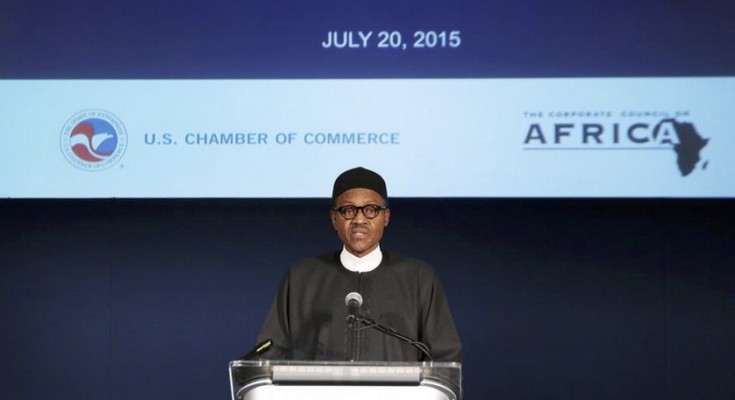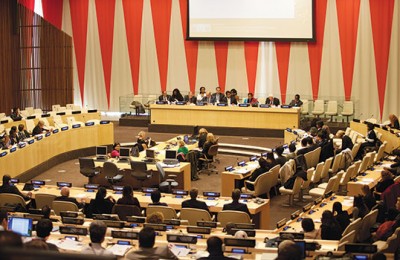By Stephen Hayes
More than anywhere else in the world, Africa has been discussed as the last emerging market in the world, the largest emerging market, the land of opportunity and any number of other clichés that pundits like to use in an increasingly futile attempt to convince you they actually know what they are talking about. Statistics are thrown about that generally blur the mind to nuances, and people simply turn the channel to NCIS, CSI or the Home Shopping Network without giving Africa and its relevance to our own economic welfare further thought. However, there are many reasons that the average American should look at Africa more closely before further channel surfing.
Here are my top ten reasons that most Americans can relate to:
1. At last, your liberal arts degree has practical meaning.
Yes, that undergrad history, sociology. French literature or psychology degree has practical use after all. Doing business in Africa isn’t like doing business in the United States. You don’t walk in an office, tell your mark what a great product you have and close the deal on the same day. No, in Africa you really need to build a real relationship before making a sale, as painful as it may be for the nerds who majored in economics in their undergraduate years. Africans don’t talk to you while you look at your email on your cell phone. They need to know who you are and why they should trust you, because when you first meet an African, they have good reason not to. Your history degree should help you understand that. And that’s when it hits you…yes, your liberal arts education may have been worthwhile after all. And those psychology courses, with minors in cross-cultural studies will finally make sense. Africa makes you realize your Dad didn’t waste his money on your semi-sober education after all. And as a bonus you may end up with one of the few real relationships you have in your otherwise sorry life.
2. Your favorite beach won’t be swamped with thousands of drunken students on spring break.
In fact, your favorite beach in Africa will likely have no one else on the beach for miles. Africa has over 25,000 miles of beaches and coastline, and almost all of those miles are undeveloped, with some of the most beautiful sunrises and sunsets you will ever watch with only a few friends who were daring enough to make the trek with you. The business potential in tourism alone is unmatched, but for every hotel and resort to be built, there must be infrastructure, roads, trained service industry workers and reliable power supplies. And if not roads, then an airstrip is required. The potential for the hotel and tourism industry in Africa is unparalleled to any other place on Earth. Business opportunities are virtually limitless. For every investment in tourism, there is an opportunity to be a part of a much larger consortium necessary for it to work. Find the right American company looking at Africa and help build that consortium.
3. You may never have to eat at a fast food restaurant again.
You probably will never go hungry on the continent. Almost everything that grows in dirt grows in Africa. Yes, there have been famines in Africa, nearly all caused by poor planning, government incompetencies and wrong-headed “social engineering” plots based on discredited political theories, but Africa is capable of feeding itself and nearly all the rest of the world’s population. Every nation in Africa is capable of feeding itself, and most can feed so many more of the world’s population. More than 70 percent of the world’s remaining untilled arable land is in Africa. Hormone-laced foods, food additives and livestock crammed into small spaces are a rarity in Africa. Africa puts Whole Foods to shame with its truly organic produce. The problem is, however, getting the food to market. Therein is the business opportunity. As much as 80 percent of African produce is not consumed, often rotting in the field through lack of cold storage, poor roads and market accessibility. The opportunity for agriculture investment that increases the livelihoods of Africans and at the same time brings reasonable profits for your investment is also virtually unlimited.
4. You won’t have to watch CNN and wonder if it is really possible that Donald Trump could someday be your president.
Much has been written about the need for political leadership in Africa and the corruption from the top making it difficult for transparent business models that are fair to investors. This is not totally undeserved, but the political winds in Africa are flowing toward more open societies and greater involvement of the populace in the political processes of their respective nations. Take a look at the education of most African government ministers and you will find a very highly educated political elite, often better degreed than U.S. Cabinet members and certainly better than many of our own elected representatives. Africa isn’t your father’s Oldsmobile anymore. At the same time as Africa’s democratic processes are strengthening and more people are beginning to benefit from change, American politics are moving in the opposite direction. Fewer people are voting in elections, the gap between rich and poor is increasing, and the population is feeling less, not more, hopeful for the future. Buffoons with too much time and money on their hands can afford to run. The image with which we have painted Africa is becoming us. To quote Walt Kelly, “We have met the enemy and it is us.” Africa offers a far more optimistic scenario for the future, and with optimism is more openness to new ideas and innovation. Opportunity in Africa is increasing, not decreasing. Find the right partner, in the right country, and your investment could help you and many others.
5. You don’t have to attend a Star Wars convention or be a Trekkie in a silly costume to be a time-traveler.
To be in Africa is to be a time traveler, where you can be in the past, present and future all at the same time. The extraordinary wildlife heritage in Africa is like no place on Earth. Species that have moved across the continent are a link to the past and still a part of the present, and wise social investment can help make it a part of the future for generations to come. The pressures on Africa’s heritage are enormous, with poachers threatening extinction for hundreds of species, from rhinoceros to elephants, to pangolins to cheetahs. Investors may be the most effective way to save Africa’s wildlife heritage and its great tourism investment, from investment around the Serengeti Plain to desert tourism on the Sahara, an expanse greater than the United States. By traveling in rural areas of Africa you can see the human past as well, and in some of its cities such as Nairobi, you can see the future, with rising skyscrapers and some of the most innovative new businesses in the world. It is all happening at once, a blur of future, past, and present. Investors have an opportunity to create the future.
6. You don’t have to be an arms merchant or a diamond smuggler to make money in Africa. You can do something totally legal, do well and do good despite what movies and the media tell you.
If one relies on Hollywood and the American media for your information about Africa, as much of the American public does, you may assume Africa is one big killing field (“Hotel Rwanda”, “Last King of Scotland”) or you probably assume every young male has a machine gun, fires it from a moving vehicle, and has been kidnapped as a child soldier by an unsmiling maniacal general. Or perhaps they have AIDS or Ebola. The only salvation of African young men seems to be being saved by Nicholas Cage (“Lord of War”), Bruce Willis (“Tears of the Sun”), or Leonardo DiCaprio (“Blood Diamonds”), or perhaps being adopted by Angelina Jolie and Brad Pitt or Madonna. Don’t get me wrong. Child soldiers are an unforgivable tragedy, as are the ravages of AIDS and Ebola, but they are a very small part of the African story. I also have nothing against adoptions. I personally would love to be adopted by Brangelina, but there are much more deeper stories of Africa to be told. But speaking of movies, Nigeria is now the third largest producers of movies in the world and the best of the productions are as good as any in the world. You’ll just never see them in America. There are opportunities in filmmaking and certainly every nation in Africa needs improved medical services. These are not examples of tragedies but examples of opportunities for investors.
7. You won’t see many telephone lines in Africa visually polluting your sight lines…
The largest cell phone market in the world is Africa. Essentially, Africa has skipped over having landlines in their homes and the cell phone market is booming. Over the past five years, according to the International Telecommunications Union, the continent’s mobile phone use has increased by 65 percent. This is very good news for investors in telecom and IT-related matters. In the Democratic Republic of the Congo (DRC), where 60 million people reside, there are only 10,000 fixed telephones but more than a million mobile phone subscribers. In Chad, the fifth least developed nation in the world, mobile phone use went from 10,000 subscribers to 200,000 in three years. In Tanzania 97 percent of the population said they could access a cell phone but only 28 percent have access to a land line phone. In Nigeria, with the largest population in Africa (approx. 160 million), 25 percent have access to a cell phone. This means tens of millions potential customers still remain in this country alone. The market for cell phone and related IT equipment is enormous throughout Africa. ET, call home.
8. …Unfortunately, you won’t see many transmission lines either.
There isn’t a single country in Africa that is meeting its current power needs, let alone has any reserve electrical power for the future, which explains why there are so few telephone lines. South Africa, Africa’s most developed economy is still operating on more than a 10 percent deficit of power, with brown outs a daily occurrence in many cities. Nigeria can only meet about 20 percent of its current power needs.
Kenya, one of the five most developed nations in Africa is only meeting 50 percent of its current power needs. Few countries are meeting 50 percent of their electrical needs. This, of course, makes it difficult for manufacturing, computing, internet use and general street safety to name a few. In fact, just about every aspect of your working and resting life is related to the need for electricity. Without a consistent power source the development of Africa is limited to the amount of electricity available consistently. To meet the current and future power needs, Africa will need to build electrical power sources for the next 50 years. Here, too, we can see tragedy, or we can see an enormous opportunity for investors in not only the construction of power plants of all sorts, the laying of transmission lines throughout the continent and the infrastructure to deliver that power to consumers all over Africa. There are few more important investments to be made than in the development of power sources and delivery systems. President Obama has made the development of power for Africa as one of his principal legacies for Africa. It won’t happen without private sector investment.
9. You can help others in Africa earn the same meaningless degrees you received as a college student…or even help them find a job and still make money for it.
More than half the population of Africa is under the age of 30, and in some countries under the age of 15. Some see this as a walking time bomb of unemployment waiting to explode. Others see this as an opportunity for education investment, capacity building, job training and leadership development. A college education still has meaning in Africa, but so does vocational training and this may be even more important than a college degree. There is a significantly understated and underutilized role for vocational training institutions. Africa badly needs a trained workforce because any investor also needs a trained workforce. The United States has one of the best vocational training networks in the world. Imagine how many people need and want that vocational training in Africa. It is a virtually limitless market and business opportunity for capacity building and training.
10. No matter where you look in Africa, only the blind man would fail to see opportunity for investment.
Whether you are a small or large investor, there is opportunity in Africa. No matter where you look you are likely to be mugged by an idea that could earn you a living in Africa. Stand along the mighty Congo River and see a river transport company, a fishing venture or river tourism. Stand in Addis and see the enormous market for ICT that will soon open there. See the people wandering the streets of Lagos and imagine the housing that is needed before Lagos becomes a major hub. Travel by train and see the need for modern rail that can move people and products throughout the continent. You need some financing for anything no matter what size your venture is, and you will also need to find reliable partners on the ground, just like anywhere else in the world. You will need to understand the culture and how things operate.
When you do, you make the investment for a lifetime.
Stephen Hayes is the president and CEO of The Corporate Council on Africa, the premier organization devoted to U.S.-Africa business relations (www.corporatecouncilonafrica.com).














